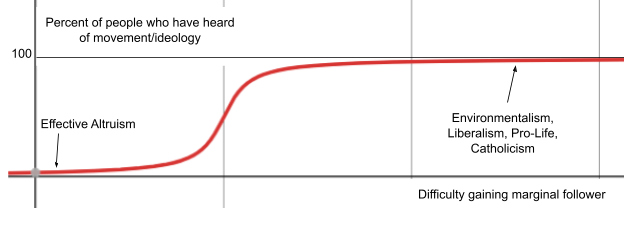In many places where Effective Altruism-related organizations carry out their operations, the locals do not speak English. Likewise, most under-developed and developing countries communicate in languages other than English, and the opportunity cost of not being able to reach out to them is very high.
We need to direct our community-building efforts at ensuring that we can connect with the almost 75% of the world that does not speak English. We are missing out on many people who would find agreeance on EA's principles simply because we do not have any content in their languages. The community could significantly enlarge just by translating more materials into Spanish, Hindi, Mandarin, and Arabic, to list a few.
Even in other western languages, we miss out a lot because we constantly create new material exclusively in English. Since few people translate it, it is not getting to our audiences in other languages. Aaron Bergman pointed out the potential for expansion of Effective Altruism because people are not acquainted with the movement. This premise holds for English and other languages because our communities are smaller, and there is less online material for people to teach themselves the material.

If you look at the web pages of EA in other languages, like the Spanish one, for example, you will notice that there are significantly fewer posts than on the English page. For instance, the Spanish blog right now has only eight posts. This lack of engagement generates a vast asymmetry considering that EA is a discussion-based organization. People cannot partake in these discussions simply because our translation efforts are insufficient.
Many people in the EA network are bilingual or even polyglots. We do not need professional translators; first-year college students can easily translate pre-existing materials into other languages. We can implement a peer review system to ensure accurate translations. Since most materials are online, we can continuously work on making the translations more precise.
Furthermore, I believe that the Center for Effective Altruism should and could allocate some funds toward this end. In 2020, the CEA spent $340,000 to create online content and $560,000 to run events. We could direct a small amount of these funds to organize events in other countries and provide grants for people to publish materials in other languages. These actions could contribute to member building, a neglected cause area, especially in expanding our horizons and making the organization more diverse.
Diversity could also benefit significantly from increased accessibility of EA material in other languages. Let's look at the demographics of EA. We will notice that most of the membership is composed of wealthy, educated caucasian whites, usually coming from both the East and West Coasts. They attend selective universities in the US. By making the material available in other languages, we can address people from more backgrounds that we cannot reach now because of a language barrier.
Expanding the offer of EA content in other languages is also very important to reduce any potential "white savior complex.". I'm not too fond of this term, but I believe that since many communities in which EA intervenes directly are located in places where people do not speak English, building deeper ties with the locals requires us to start making sure that we can communicate in their languages and also have some materials in the language, so instead of we coming to them and bringing the solutions, we can empower and include them to lead the changes we are doing.
Furthermore, I believe that we may be neglecting some causes, areas, or populations because of not being able to engage in conversations with the non-English speaking parts of the world. This claim is also valid for generalizations. Much information about particular countries is primarily available in other languages; we may overlook it by relying only on what is being said in English.
Lastly, I believe that we are missing an opportunity of taking advantage of cultural differences. EA's current understanding of altruism is based on western values of freedom, individualism, and reason. I sympathize with these values, but I know that the culture works differently in many places worldwide. Altruism is sometimes related to religious or family ties and helping the community, meaning that altruism in some areas is more of a communitarian than an individualistic effort. We are missing out on these cultural drives to make the world better by relying mainly on English-speaking audiences who align predominantly with western values.
I know that there are many constraints to expanding abroad and into other languages, but I believe it is an issue we need to pay more attention to.
I am sure that many people and opportunities are waiting for us once we exit the English-speaking bubble and the language barrier.
I am open to anyone’s thoughts on this. Feel free to correct me or include suggestions.
